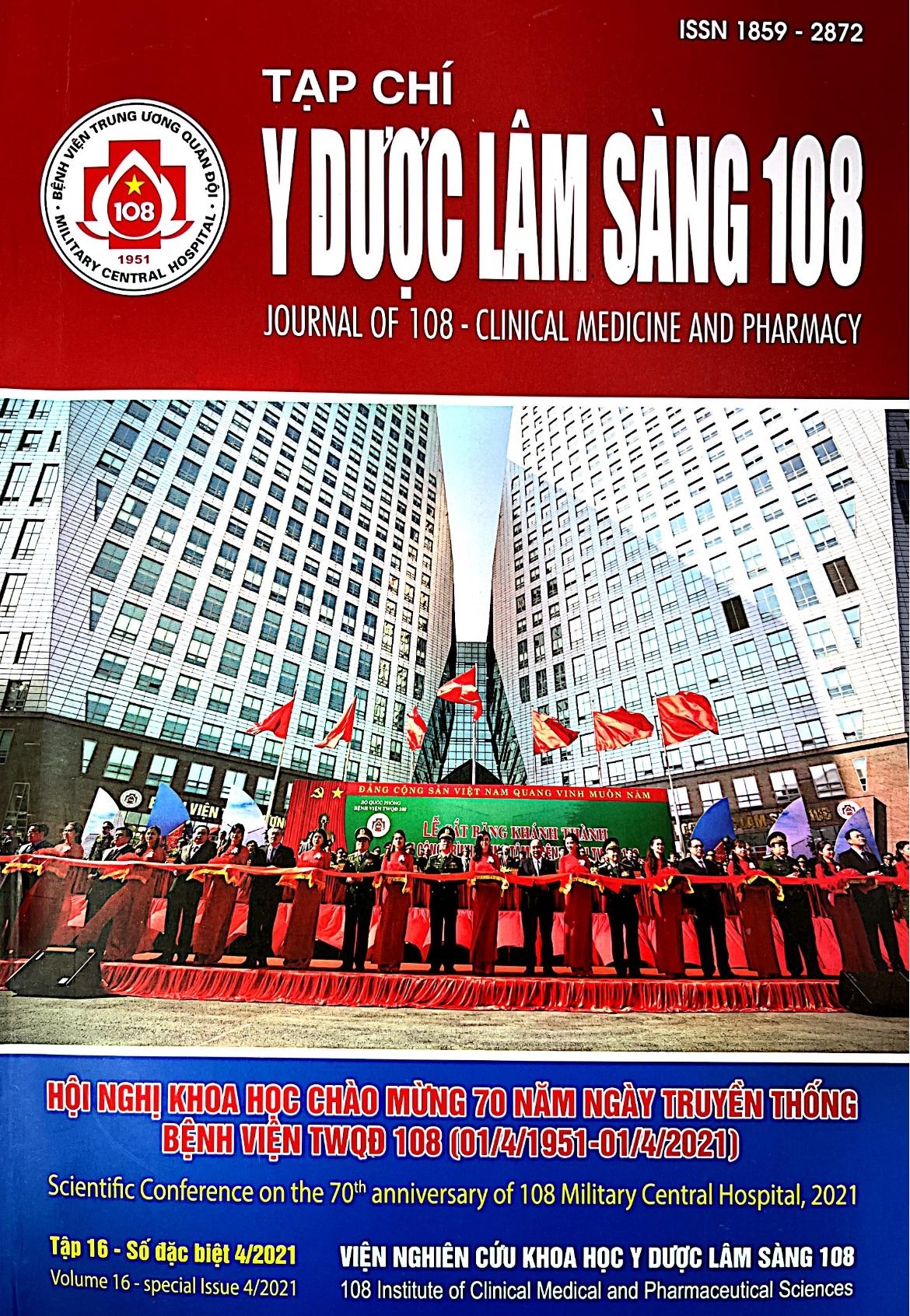Intestinal failure syndrome after total enterectomy, right colectomy due to superior mesenteric artery thrombosis: Postoperative management and literature review, two cases at 108 Military Central Hospital
Main Article Content
Keywords
Abstract
Reported two patients with type 3 bowel failure syndrome after surgical resection of the entire small intestine and right colectomy. Treatment experience, postoperative care, literature review. The first patient, 44 year-old male had emergency surgery to remove the entire small intestine and right half of the colon, draining the third duodenum due to complete obstruction of the superior mesenteric artery causing complete necrosis of the small intestine and right colon. The patient was fed intravenously, had a septicemia from the box for subcutaneous infusion, femoral artery occlusion, 8 months postoperative patient died of pulmonary thrombosis. The second patient, 66 year-old male had emergency surgery to remove the entire small intestine and right half of the colon, draining the third duodenum due to complete obstruction of the superior mesenteric artery causing complete necrosis of the small intestine and right colon. After 4 months, the patient was connected to the jejunum and transverse colon. The patient was orally fed with the main intravenous route. After 20 months, the patient died from exhaustion, brain stroke. Intestinal failure patients are fed intravenously to help prolong life, reduce the rate of complications. Bowel transplantations is an optimal solution to resolve long-term intravenous nutritional complications in patients with bowel failure.
Article Details
References
2. Alan NL (2008) Do. intestinal failure. Diagnosis, Management and Transplantation, by Blackwell Publishing.
3. Gotthardt DN, Gauss A, Zech U et al (2013) Indications for intestinal transplantation: Recognizing the scope and limits of total parenteral nutrition. Clin Transplant 27: 49–55.
4. Fryer JP (2008) The current status of intestinal transplantation. Curr Opin Organ Transplant 13(3): 266-272.
5. Pironi L, Hébuterne X, Van Gossum A and et al (2006) Candidates for intestinal transplantation: A multicenter survey in Europe. Am J Gastroenterol, 101(7): 1633-1643; quiz 1679.
6. Howard L and Ashley C (2003) Management of complications in patients receiving home parenteral nutrition. Gastroenterology 124(6): 1651-1661.
7. Bakker H, Bozzetti F, Staun M et al (1999) Home parenteral nutrition in adults: A european multicentre survey in 1997. ESPEN-Home Artificial Nutrition Working Group. Clin Nutr 18(3): 135–140.
8. Milewski PJ, Gross E, Holbrook I et al (1980) Parenteral nutrition at home in management of intestinal failure. Br Med J 280(6228): 1356-1357.
9. Dibb M, Teubner A, Theis V et al (2013) Review article: The management of long-term parenteral nutrition. Aliment Pharmacol Ther 37(6): 587-603.
10. O’Keefe S, Emerling M, Koritsky D et al (2007) Nutrition and quality of life following small intestinal transplantation. The American journal of gastroenterology 102: 1093-100.
11. John K DiBaise (2017) Management of the short bowel syndrome in adults. UpToDate, accessed: 08/2017.
12. Boullata JI, Gilbert K, Sacks G et al (2014) A.S.P.E.N. clinical guidelines: Parenteral nutrition ordering, order review, compounding, labeling, and dispensing. JPEN J Parenter Enteral Nutr 38(3): 334-377.
13. Duro D, Kamin D and Duggan C (2008) Overview of pediatric short bowel syndrome. J Pediatr Gastroenterol Nutr 47(1): 33-36.
 ISSN: 1859 - 2872
ISSN: 1859 - 2872
